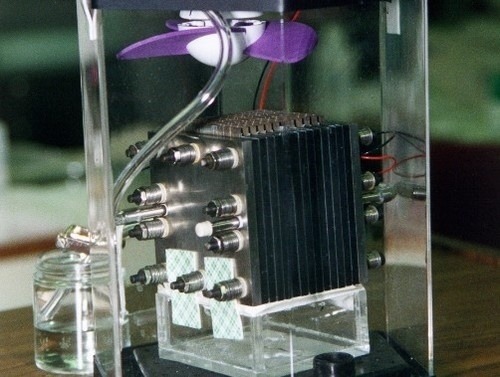The next big alternative fuel source could be urine

Piss. Everybody makes it and unless you’re one of those kinky fuckers, we usually don’t have much use for it. But scientists in China, where I hear piss is everywhere, have developed a method to use urine to extract electricity and pure, clean water. Maybe one day your car might be powered by these magical Chinese pee machines. Maybe one day, Chinese putting pee-pee in your Coke might not be a joke at all.
The brainchild of Doctors Shanwen Tao and Rong Lan, this new fuel cell uses cheaper materials for its membrane and catalysts, and it uses a non-toxic, non-combustible fuel: urine. Specifically, a component of human and animal urine known as urea, which is currently mass-produced as an industrial fertilizer. Urea is also known as carbamide, which is where the new power system gets its name. (For some reason, Tao and Lan felt Urea Power System didn’t have quite as nice a ring to it.) And yes, it’s possible to substitute actual urine in place of the urea, as you can see in the diagram from their wonderfully named company, Youtricity.
Dr. Tao explains where he first got the idea:
“Growing up in rural eastern China I was aware of the use of urea as an agricultural fertilizer. When I became a chemist and was looking at fuel cell development I thought of using it in the process. We are only at prototype stage at present, but if this renewable material can be used as a commercially viable and environmentally friendly energy source then we will be absolutely delighted, and many people around the world will benefit.” Because urea is being used in trucks and other heavy-duty vehicles to reduce nitrous oxide emissions, there’s already a fueling infrastructure in place for the cells. Dr. Tao says submarines and other military vehicles could definitely make use of these cells, as could isolated regions without ready access to other forms of energy, such as deserts and islands. With a little tweaking to the design, the fuel cells could also create clean, reprocessed waste water as a byproduct of their electricity creation.



